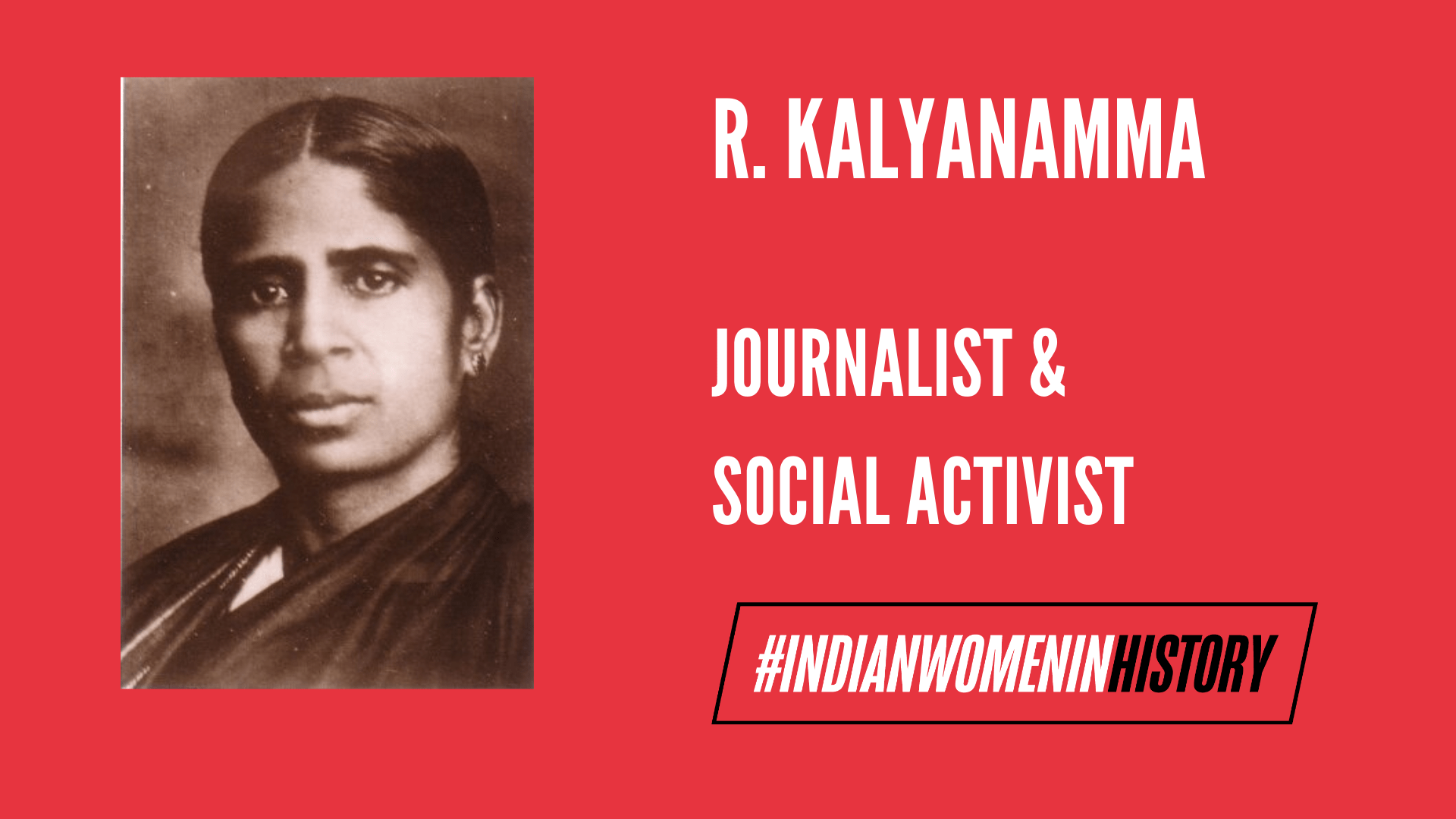R. Kalyanamma, a pioneer journalist and activist from Karnataka, wrote in an era where women’s voices were never given the centre stage, policed, and often, silenced. Despite the pervasive patriarchal norms, R. Kalyanamma not just defied societal expectations, but through her work, set a new standard for women working outside of their homes and for journalism itself.
While R. Kalyanamma’s achievements stand brighter because she took pioneering steps for women, her works would be no less bright, and indeed deserve to be looked at, as standalone and exemplary journalistic and community service achievements. Her social work became more prominent in her later years, drawing great praise from the former Indian Prime Minister, Indira Gandhi, for her role in promoting children’s welfare in Karnataka, an effort which provided an initial platform to many famed journalists and writers from the state. Admirers of her work are said to have included the former President of the United States of America, John F. Kennedy as well. Maharaja Krishnaraja Wadiyar IV of Mysore is also on record as being one of the high-profile donors supporting her work with children.
Be it her personal writing, her literary entrepreneurship, or her social service, R. Kalyanamma’s approach was defined by a need to empower others and have them take over the reins as leaders themselves. She was a leader who wanted to create more leaders.
Also Read: How Is Women Writing A Form Of Protest In A Male-Dominated World?
Early Life
R. Kalyanamma was born in 1894 (though this date can be disputed, with at least one other account stating it to be 1892). Child marriage being an accepted practice of the times, she was married off by the age of nine and, was widowed just 45 days into this marriage. She abided by the dictates of an era which considered re-marriage of widows blasphemous, but early on showed a disinterest in following most other conventions. By the age of 13, she had received lower secondary education covering Kannada and English, which further sharpened her literary interests.
Spurred by a need to be heard and to bring about social change, she started a magazine called Saraswathi in 1921. In its run of over four decades, the unique publication veered into topics concerning women’s lives like never before, including about health and politics, and the copies were often hand-delivered door-to-door by the founder herself. She fought against the dowry system assiduously (a radical effort for the time), viewed it through the lens of marriage, and asserted that love marriages were a solution to this morass. She established the Sharada Stree Samaj at Chamarajpet in 1913, and won the Vidya Vinodini Award in 1918.
Journalism and Social Service
R Kalyanamma’s compassion came wrapped in literary pursuits, so when it came to engaging children, she started dedicating a special section for them in the magazine. Makkala Bavuta, her magazine, featured works that were written and edited by children. But her most long-lasting legacy has been of Makkala Koota. Located in the city of Bengaluru near another significant establishment, the Kannada Saahithya Parishath (Kannada Literary Council), Makkala Koota is the fond name for The All Karnataka Children’s Association and was founded in 1938. Over the following decades, it became a state-wide phenomenon with its one-month-long summer camps and nominal charges remaining popular till date. Its annual children’s festivals have included large processions and gatherings, with state departments pitching in to arrange for stay and transportation services for the persons involved. The stage events would centre children not just as participants but as leaders and overseers of the proceedings. A two-acre playground at the Koota compound today is named after her – Kalyanamma Makkala Aatada Maidana. The space also challenged caste and class dictates of the times by opening up the space for all children, winning the Rajyotsava Award in 1985 for its work.
R. Kalyanamma was nominated twice to the Municipal Council and was a member of the Mysore University Senate. She was also an Honorary Bench Magistrate (1933), President of the Municipal School Board, the President of the Kannada Journalist Congregation at the Kannada Saahithya Parishath (1940), a member of the Muslim Education Committee (1937), and and the vice-president of the Bangalore City Corporation in 1938. She also received the Golden Award for Public Service in 1938. During this time, she worked with another visionary social worker, H.Y. Saraswati, who went on to set up the Mysore Makkala Koota. R. Kalyanamma was also the President of the Women’s Peace League from 1953-55.
Also Read: Rajeshwari Chatterjee: First Woman Engineer From Karnataka | #IndianWomenInHistory
Legacy
R. Kalyanamma was born into a period that did not value the voice of a woman and women’s writings were considered ‘inferior’. R. Kalyanamma’s determination cut through this disdain. She was not just a woman who was writing, she was a widow who was writing, effectively re-imagining her role in society even as she remained socially humble in the absence of a husband. This was also a woman who understood the mileage an elevated government position could provide and used it brilliantly to fulfil higher goals in her social service pursuits.
R. Kalyanamma passed on in 1965 and left behind a body of work so rich that it is an indelible part of Karnataka’s history.
References:
1. Bangalore Mirror
2. Makkala Koota
3. Women’s Peace League
4. revelationsxx.wordpress.com
Featured Image Source : Kamat.com
About the author(s)
Shruti Sharada is a freelance writer, editor, communications strategist, podcast host and queer feminist based in Bengaluru.




